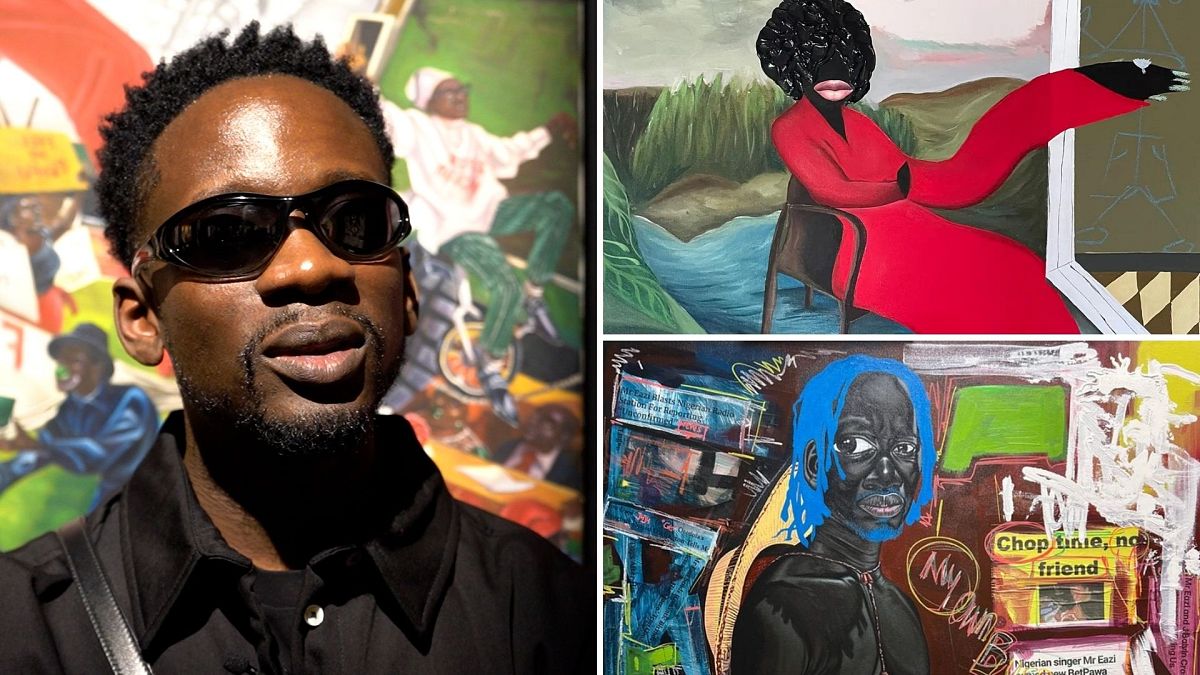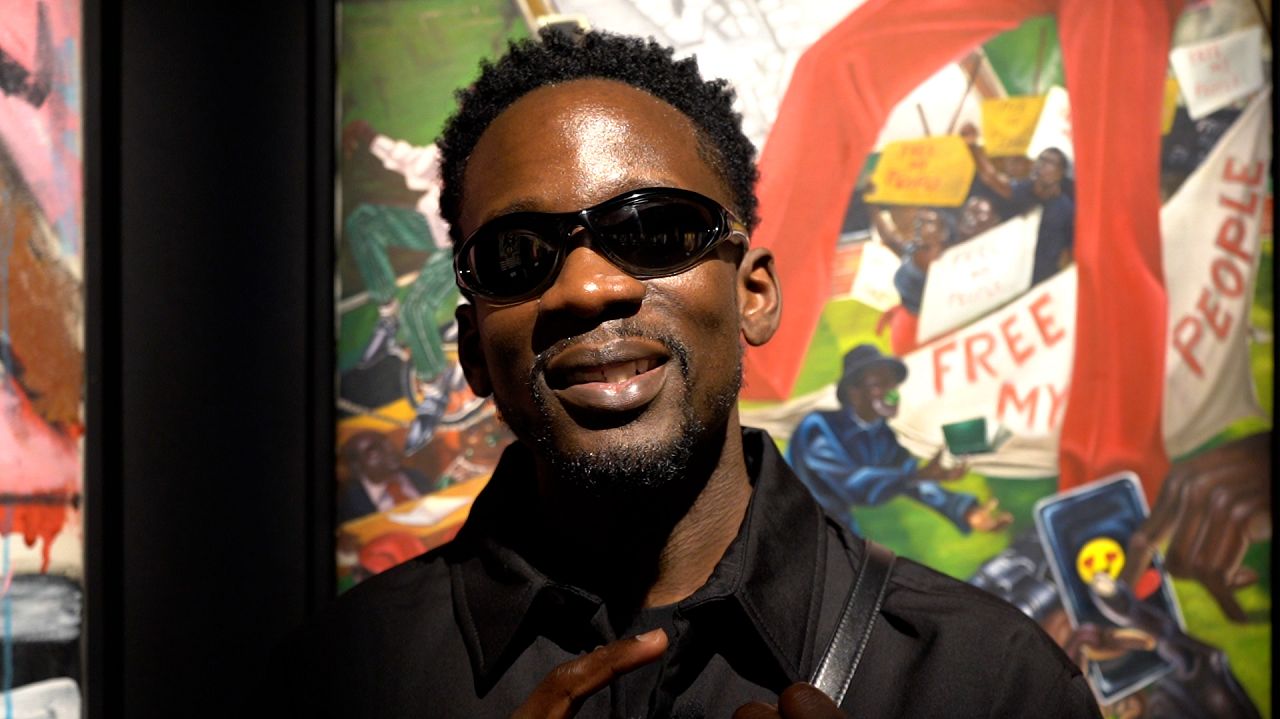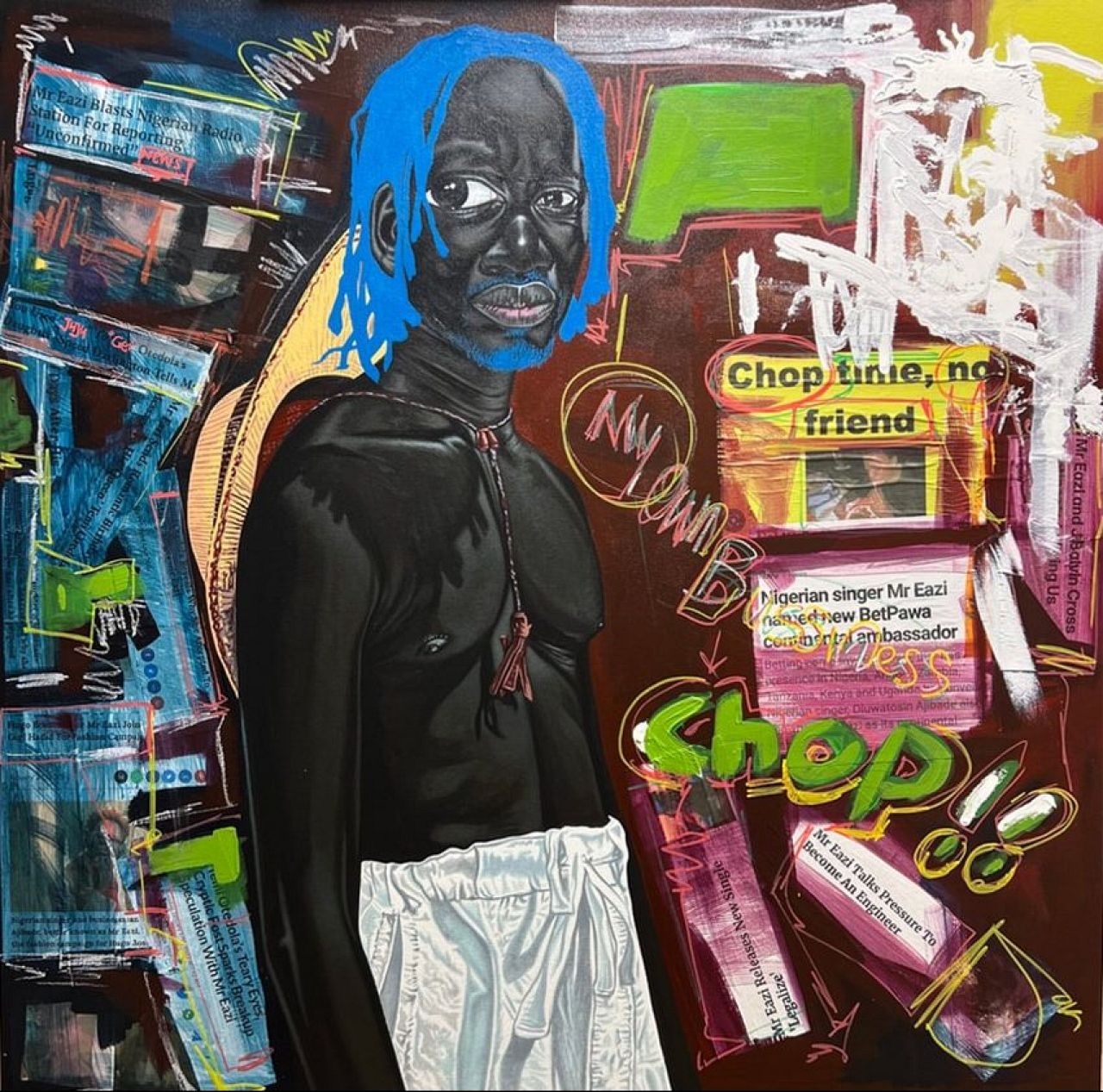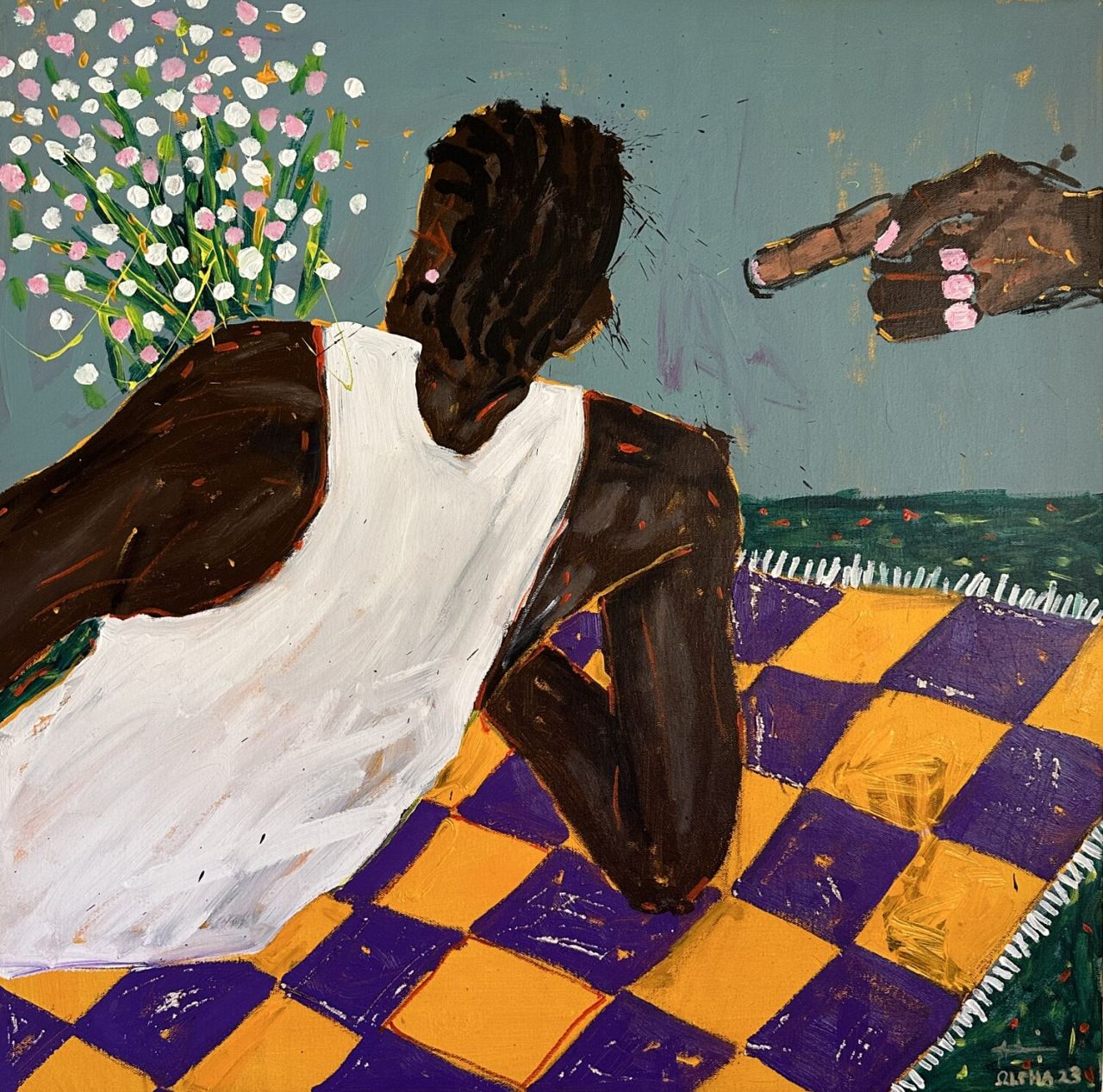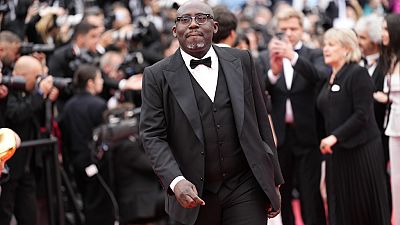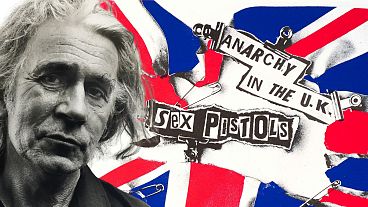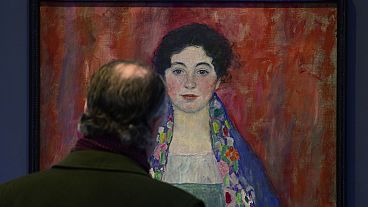Euronews Culture spoke to Mr Eazi, a shining star in the African music scene, following the release of his debut full-length album, 'Evil Genius'.
Mr Eazi never really planned to become a global Afrobeats superstar.
Originally from Nigeria, he ended up in Kumasi, Ghana for college, studying mechanical engineering. But he quickly got tired of his uninspiring lectures and started hosting events, which soon turned into wild parties and music festivals.
Eventually, he dipped his toes into making music and hit it big in 2015 with his single 'Skintight'.
Fast forward to today, and Mr Eazi's music has been streamed over 1.5 billion times on Spotify. He's considered a pioneer of Banku music (a style described as a fusion of Ghanaian highlife and Nigerian chord progressions) and has also collaborated with some of music's biggest names, including Beyoncé, J Balvin, Diplo, Burna Boy and Bad Bunny.
But Eazi isn't just a musician; he's also a champion of African art. To celebrate his new extraordinary album 'Evil Genius', he commissioned 13 artists from across Africa to create unique pieces inspired by each track on the record.
The 16-track album has been three-years in the making, and is packed with emotional stories about love, betrayal, family, and legacy, making it a perfect canvas for artistic expression.
The effortlessly-cool Eazi recently showcased these artworks at London's 1-54 Contemporary African Art Fair, where he gave a tour, explaining the connection between each painting and song.
We had a chance to chat to Eazi and discuss his latest album, his unconventional path to stardom, the meaningful message he's trying to share with the world and his thoughts on artificial intelligence.
Euronews Culture: Could you share a little about your journey to success? What were the key steps or experiences that led you to where you are today?
Mr Eazi: I'd like to think entrepreneurship brought me here because I started to do events in uni just because, frankly speaking, uni was boring, studying engineering. And secondly, I wanted to make some more money on the side. So I started doing events, parties, and these parties became festivals, raves, concerts. And that started to bring me around musicians, producers and artists and I found myself recording.
I think the turning point for me deciding to do music as a career was in 2015 when Lauryn Hill’s team reached out to me and invited me to come perform at the Kings Theatre in Brooklyn. And at that point, I didn't think I was even a musician, like a career musician. That was the first very strong signal.
So shortly after that in 2016 I decided to go through this music journey. And it's been a fun and successful journey.
What have been the most important musical influences throughout your life?
My first introduction must've been like lots of Nigerian gospel music and Don Moen from America. Then reggae from my dad then highlife from my uncle. A lot of highlife gospel. And then later from high school I started listening to a lot of hip-hop and R&B.
Why do you think Afrobeats and Afropop have achieved such widespread popularity in recent years, transcending continents and becoming some of, if not the most popular genres?
I think first off it’s because of the internet. The internet has dropped the barrier to entry and where the music was bubbling only in the clubs and you couldn't really see it, now you can see it on TikTok, on Instagram. And what has happened from social media has then transcended to the streaming platform. The music has always been good, but now you're seeing that it's able to travel and travel really quickly.
And the African diaspora has also been very important in supporting the music, sharing it with their friends. So what was very visible on the continent and across Africa is now resonating very strongly with the African diaspora. And the internet is doing a great job of spreading it to the world.
You've collaborated with some of music's biggest stars, including the likes of Beyonce, Bad Bunny, Burna Boy and J Balvin. Are there any artists remaining on your bucket list for future collaborations?
Damian Marley. I’ve always loved reggae and Bob Marley.
There was also this artist from Nigeria, Majek Fashek, who was like our Bob Marley in terms of the kind of music he made. He made reggae music but with some local feel, with the talking drums. He’s one of the artists who influenced me the most.
As part of your upcoming album, you collaborated with 13 artists from eight different African countries, with each artist creating artwork that corresponds to a specific song on the album. How did you go about this collaborative process?
When we reached out to the artists, we sent them the music and the lyrics. And the first thing they had to do was come back to us and tell us if the music really spoke to them. Like if they could feel something from the music. And we would then have another conversation where we just chat about the emotions behind the song, what they felt, and just talk about the topics being spoken about on the record.
I gave them total freedom to just go create whatever they felt like using whatever medium they wanted. And after they did that, they would then present it to me. That was the process for all the songs.
You recorded your album all over the worldwide, predominantly in Africa, but also in London, Los Angeles and New York. Could you share how you think this extensive travel and exploration has impacted the album's sound and music?
I think as an artist I'm sort of like a sponge. Without knowing, my environment seeps into me and I might not even know how.
By the time you listen to my songs, sometimes you listen to the instrumentation, it's like you hear something that is meant to be highlife has a jazz feel to it. And you hear something that you might call Afrobeat has a sort of hip hop bounce to it, like on my track 'We Dey'. And there’s no surprise there as I made some of it in LA. And so I think somehow our environment as artists ends up influencing the kind of music we make in ways that we might not even realise.
On this album, you touch on themes of love, betrayal, loneliness, family, and importantly, legacy. How would you like to be remembered, and what message do you wish to leave the world?
Well I just I think the central theme for me has always been freedom. So I think one thing that I always like to express, and that I think is core to my identity, is freedom. Freedom of expression, especially within art. And one thing I'm passionate about now is making sure I can enable others to freely create and within their creation, have economic and creative freedom.
What are your views on the rise of artificial intelligence? Do you see it as a danger to music or a potential tool for creativity?
I think technology, like everything that's created in this world, can be used for good and for evil. But I’d like to focus more on AI as a tool for good. I feel that same technology can be used to assist creatives in writing. Like I should be able to use AI to make a song that sounds like Mr Eazi and have that collaborative process with technology. Just the same way I use technology to have my music available to the whole world.
How would you describe 'Evil Genius' in three words?
Very lush instrumentation!
'Evil Genius' is out today (Friday 27 October).
